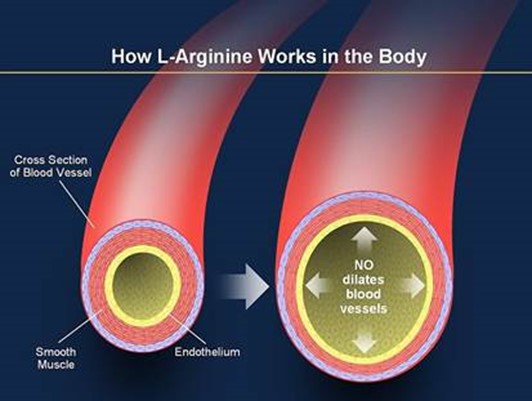
L-Arginine is a semi-essential amino acid that serves as a precursor to nitric oxide (NO), which supports blood flow, cardiovascular health, and other physiological processes. Recent research highlights its potential.
- Cardiovascular Health: L-Arginine plays a vital role in cardiovascular health by enhancing endothelial function and improving blood flow.
- Exercise Performance: A 2020 meta-analysis found 0.15 g/kg (10-11 g) taken 60-90 minutes pre-exercise improved aerobic and anaerobic performance.
- Pregnancy and Hypertension: Evidence suggests L-Arginine may reduce gestational hypertension, though more data is needed.
- Oxidative Stress: Its role in NO production can mitigate ROS, countering drug-induced oxidative damage
On December 15, 1991, the LA Times published an extensive exposé about Jimmy Keller, a man dedicated to healing and experimental medicine. The government believed he was a con man, kidnapped him in Mexico, convicted him of fraud, and put him in jail. Interestingly and importantly, the 1999 Nobel Prize research revealed him to be a medical genius. Almost all our understanding of Arginine, a simple amino acid, comes from the years following Keller’s conviction.
1999 Nobel Prize Connection
Nobel Award: The 1998 Nobel Prize in Physiology or Medicine (announced 1999) went to Robert Furchgott, Louis Ignarro, and Ferid Murad for discovering nitric oxide (NO) as a signaling molecule in the cardiovascular system, with L-Arginine as its precursor. This revolutionized cardiovascular and cancer research, validating NO’s role in vasodilation and immune response—areas Keller explored.
L-Arginine is the common substrate for two enzymes, arginase and nitric oxide synthase (NOS). As a precursor to nitric oxide, it is a key component of endothelial-derived relaxing factor. The endothelium is the inner lining of blood vessels, and Arginine supplements help increase the production of nitric oxide, which in turn helps relax and dilate blood vessels. The body needs higher levels of Arginine when it is under conditions of stress, illness, malnutrition, or injury.
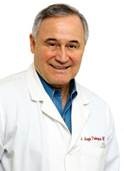
Dr. Joe Prendergast, a longtime expert on the power of L-Arginine, says, “Arginine uses the two natural pathways into the brain to promote anti-aging properties, sports performance, and boost the immune system. Because L-Arginine promotes healthy blood flow, it can also benefit human sexuality.” Arginine helps overcome cardiovascular issues and should be part of a protocol that reverses atherosclerosis. Dr. Prendergast is proud to say that all his patients during his years of practice have managed not to succumb to any strokes, heart attacks, or even diabetes.
Dr. Joe Prendergast, a board-certified endocrinologist and founder of the Endocrine Metabolic Medical Center in Palo Alto, was a pioneer in exploring L-Arginine’s therapeutic potential, particularly for cardiovascular health, diabetes, and other conditions. His work began in 1991 after learning about L-Arginine from Victor J. Dzau, MD, and John Cooke, MD, at Stanford University, where he was introduced to its role in nitric oxide (NO) production.
Magnesium L-Arginine Topical Cream New to my Protocol
There is a deep science that follows the path of Arginine, which you will see below. However, I want to highlight this amazing topical cream that gives you not only a good quantity of Arginine, but also magnesium, making it a suitable replacement for magnesium oil, which can get quite messy, and should be high on the list of those treating atherosclerosis and other heart diseases. Having a topical Arginine is what inspired me to re-examine this natural, unpatented medicine and refit it as a principal agent for cardiovascular disease treatment. That inspiration also led me to run out and purchase oral supplements so I can take my dosage levels to the moon.
It comes from the same company that makes pharmaceutical-grade PPC, which is the most potent medicine I have ever taken. What heart and vascular patients need is a complete protocol with PPC and Arginine filling in the gaps.
Cyclodextrins, the Rota Rooter of the blood vessels, magnesium, PPC, L-Arginine, Hydrogen, Oxygen, and Carbon Dioxide inhalation are the core elements of my Natural Cardiology approach, never forgetting iodine, selenium, and a few other precious items.
Arginine’s many benefits:
- Aids in liver detoxification
- Detoxifies ammonia
- Increases sperm count in males
- Aids in kidney disorders and trauma
- Maximizes protein synthesis
- Helps lower cholesterol
- Stimulates blood flow
- Stimulates cerebral circulation
- Promotes optimum growth
- Helps to reduce body fat and increase lean muscle mass
- Assists the body in collagen production
- Assists in the release of growth hormones
- Assists sexual satisfaction and potency
Actions related to its use in cancer treatment are:
- Increases oxygen-carrying capacity and delivery to cells
- Inhibits cellular replication of tumors
- Enhances immune system function
- Causes retardation of tumor growth
- Assists in the release of growth hormones
- Enhances immune response
- Improves the rate of wound healing (in cases of surgical intervention)
Arginine is used to treat conditions that improve with increased blood flow, such as chest pains, erectile dysfunction, clogged arteries, vascular disease, and headaches, according to the Mayo Clinic. Arginine is one of the 20 most common natural amino acids, and this is what Keller was injecting intelligently into his cancer patients’ veins. When he administered the amino acid solution intravenously to himself first, he was astonished. “I felt a tingling in my tumor areas. They got softer. It was phenomenal.”
An LA Times article explained how, when Keller gave a patient an injection of Tumorex, the patient would start feeling heat in their tumor (a thermometer placed on the tumor, Keller said, showed a temperature rise of one to two degrees). There was a pulling, tingling, grabbing sensation. One patient said it felt like a thousand little fingers pulling at her tumors. People with brain tumors hear popping and cracking sounds as if fireworks were going off in their heads. Tumorex didn’t always work with everyone, but when it did, Keller said, the results could be spectacular. Within hours, patients reported, tumors began to soften and shrink, and within days they began to disappear. “On open tumors,” Keller said, “you could actually see bubbles.”
Dr. George Eisberg, an Albuquerque family physician who testified at Keller’s trial, told of escorting a dying friend to Keller’s clinic. “I wheeled him in a wheelchair. He couldn’t swallow.” But as soon as Keller put him on the IV drip, the patient’s chest pain subsided so much that for dinner that night, he went out and ordered a lobster and a pina colada.
Dosages
In India, scientists at Bhabha Atomic Research Centre have gone into further detail, saying that Arginine is an effective anti-cancer molecule if used in a proper dose in an alkaline medium, and can prove to be a natural alternative to painful chemotherapy. “Arginine, when injected in proper doses and an alkaline environment, leads to speedy disruption of tumor cells and results in disappearance of the tumor,” said the lead researchers, who have been working on the anti-cancer molecule project since 2007. They found that Arginine disrupted the cell membrane of cancer cells when the alkalinity was high enough, and this will go a long way in the non-invasive treatment of cancer.
I hope you are catching the hint here to use Arginine with sodium bicarbonate. In terms of dosages for Arginine, I would recommend the same levels that are recommended for heart patients, which is five grams per day. Depending on each individual, and at the discretion of supervising health professionals, high dosages can be taken. Still, dosages should be brought up slowly unless the situation is already critical and in stage four or five.
Research by Dr. Louis Ignarro has shown that you need to consume 4,000-6,000 mg of L-Arginine in each serving to boost production of nitric oxide and receive meaningful benefits. Taking that dosage twice a day is not a problem. Intake as high as 12.5 grams of Arginine per day is used to improve immune function in hospitalized patients; the benefits include enhanced T-cell counts, lower infection rates, and shortened hospital stays. In one study of cancers in the lower digestive tract, specifically colorectal cancer, researchers found that giving cancer patients 30 grams (that’s 30,000 mg) of Arginine for three days caused cancer cells to grow more receptor sites where white blood cells could identify and destroy them.
One of the earliest studies using Arginine/omega-3 fatty acids/RNA to improve immune function was performed at the University of Minnesota in 1991 and involved 20 patients (aged 21-80) from the hospital’s intensive care unit. For 7-10 days, eleven of the patients received supplementation with a solution of 12.5 g of Arginine, 11.1 g of menhaden oil rich in omega-3 fatty acids, and 1.25 g of RNA per liter of nutrient formula, while nine patients received a placebo. The solution was delivered via a feeding tube inserted into the patients’ duodena.
More on Keller
The LA Times said that, “Keller openly practiced medicine without a license, giving injections and megavitamin IV drips, hanging the bottles on clothes hooks, treating as many as 20 people a day from all over the country. He didn’t merely give injections; he would hold people’s hands and pray with them. He put all his patients on a strict diet of foods such as whole grains, fresh vegetables, fish, fertile eggs, and chicken breasts. He urged patients to avoid aluminum pots, red meat, canned goods, alcohol, coffee, white flour, and salt.”
According to the Times, the easiest part of Keller’s defense was disproving the government’s contention that the L-Arginine serum used by Keller was “ineffective as a cancer treatment.” To refute that assertion, one of Keller’s five attorneys put several health researchers on the stand. They testified that computer searches of the standard medical databases showed some 20 to 25 articles, several of which were done at the National Cancer Institute itself, demonstrating that L-Arginine either prevented cancerous tumors in the first place or, in the case of existing tumors, made them significantly shrink or disappear entirely. The papers ranged from a 1943 study showing that in 83% of the animals tested, rat tumors disappeared within two to three weeks when injected with L-Arginine, to a 1991 Lancet study showing that when human volunteers were injected with large doses of L-Arginine over three days, their “natural-killer-cell activity rose a mean of 91%.”
In 2011, in the journal Clinical Cancer Research, scientists at the University of Colorado Cancer Center showed that treatment with the over-the-counter amino acid Arginine reactivates cancer-fighting T-cells in patients with glioblastoma, thus potentially allowing the immune system to help cleanse the body of cancer.
Nitric oxide (NO) can also have a multitude of effects on other aspects of tumor biology, including angiogenesis and metastasis. The American Society for Nutritional Sciences said in 1994 that Arginine is a dibasic, cationic, semi-essential amino acid with numerous roles in cellular metabolism. It serves as an intermediate in the urea cycle and as a precursor for protein, polyamine, creatine, and nitric oxide biosynthesis.
Arginine stimulates the release of growth hormone, insulin-like growth factor 1, insulin, and prolactin. Furthermore, Arginine influences pro-inflammatory cytokine levels. The discovery that L-Arginine is the sole precursor for the multifunctional messenger molecule, nitric oxide, led to investigation into the role of Arginine in numerous physiologic and pathophysiologic phenomena, including cancer.
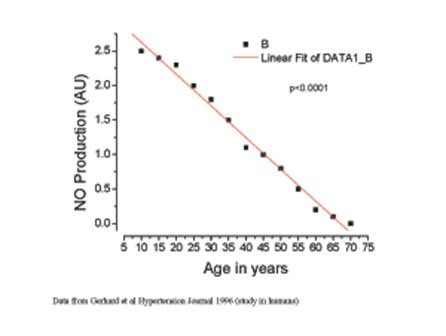
Oxygen, Arginine & Cancer
Dr. Joe Prendergast explains that one of the basic reasons Arginine would be helpful for cancer patients is its ability to deliver more oxygen to oxygen-deprived tissues in the body safely. Arginine opens up the veins and arteries to increase blood flow and volume, thus increasing oxygen to the cells.
Results of a study at Howard Hughes Medical Institute/Duke University Medical Center in 2005 showed that adding nitric oxide to the blood’s Hemoglobin can make it deliver more oxygen to tissues—without boosting heart rate or constricting blood vessels.
The team’s finding in the study above is the most substantial evidence to date supporting a theory, first developed in 1996, that nitric oxide is an innate part of the body’s oxygen delivery system. In previous studies, scientists demonstrated that nitric oxide in blood cells is an active regulatory molecule that senses the oxygen level in tissue and causes Hemoglobin to undergo subtle shape changes to release its oxygen in tissues when levels are low.
Arginine is a Novel Drug for Cancer
Arginine deiminase, a novel drug for cancer, is like a saw to a carpenter who has had only a hammer, says Rick Bold, UC Davis chief of surgical oncology. It is a tool that opens a new realm of possibilities for treating cancer. Arginine deiminase triggers a function inside cells known as autophagy, a Greek term meaning “self-eating” or “self-digestion.” Autophagy may be a way to kill cancer cells very specifically, or in oncology parlance, very elegantly—that is, to kill them without poisoning or harming normal cells as current approaches do.
The Davis group has injected both pancreatic cancer and prostate cancer cells into animals and treated them with Arginine deiminase (a pharmaceutical preparation). It appeared to kill those cancer cells. They believe it will deliver a one-two punch when used with chemo agents. Its potential in a natural protocol would be even greater, and the use of a non-pharmaceutical-sourced Arginine product would be safer and probably more effective.
In general, like all nutritional medicine, Arginine is remarkably free of side effects for the vast majority of people who have taken it, even in large therapeutic doses and with greater frequency of doses. Some have experienced diarrhea and/or nausea when taking high therapeutic doses, and one study found that several weeks of large doses might result in thickening and coarsening of the skin in some people.
Conclusion
Specialists in the surgical treatment of cancer have been studying the use of supplemental Arginine in cancer treatment since the early 1990s. In 1992, these scientists reported that the only time they observed recovery of the immune system from surgery for cancer in the upper digestive tract was when patients received a combination of Arginine, RNA, and omega-3 fatty acids.
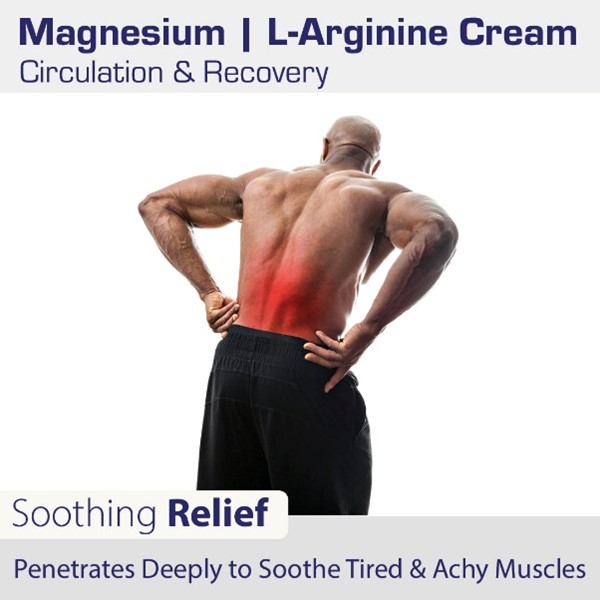
Dr.Sircus is a reader-supported publication. To receive new posts and support my work, consider becoming a free or paid subscriber.
Subscribe now

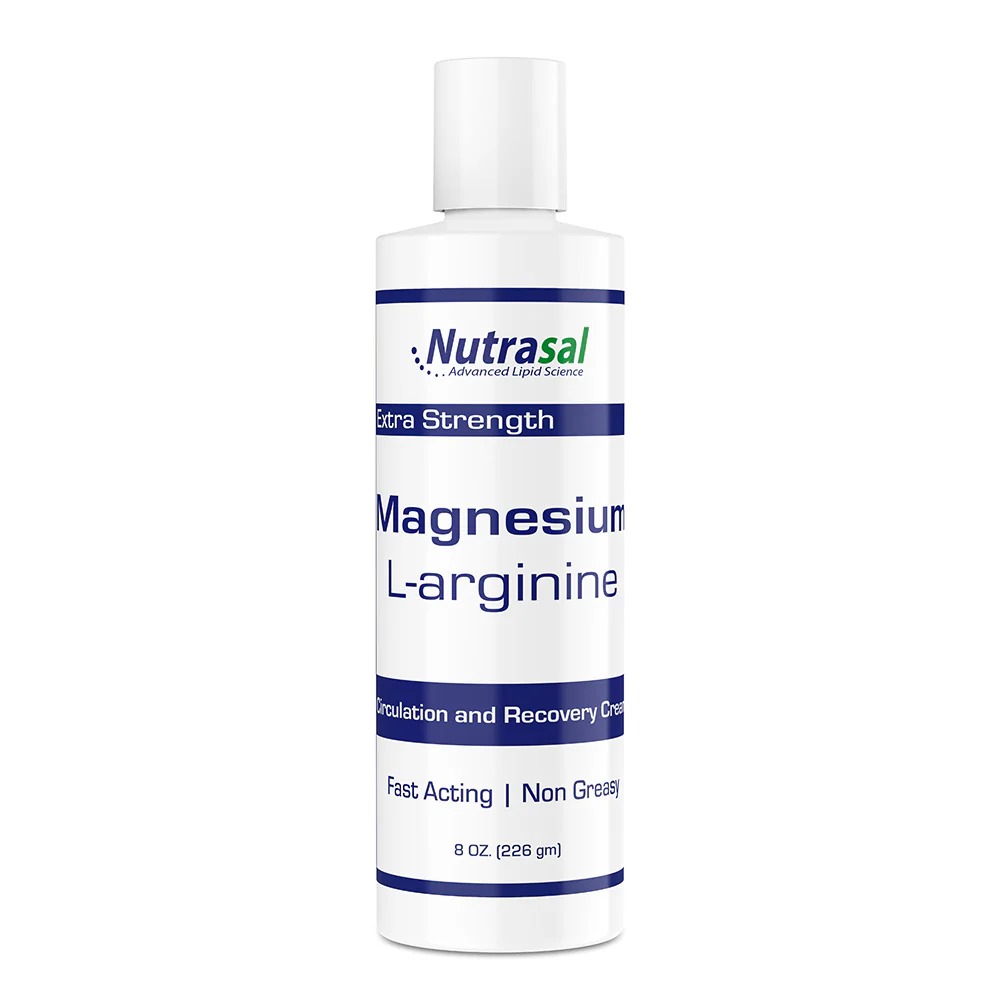



comments